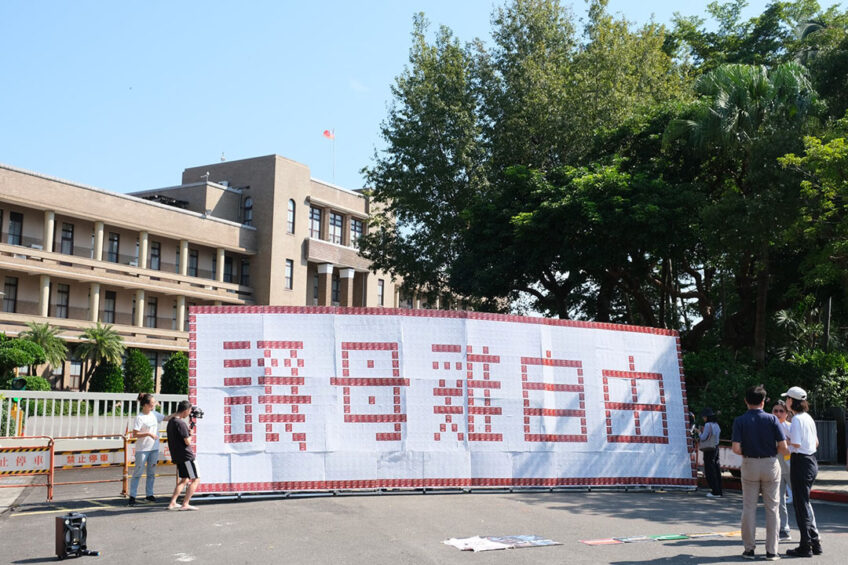Pressure for a ban on battery cages in Taiwan

On 26 October, the Environment & Animal Society of Taiwan (EAST) erected a mural outside the Executive Yuan demanding a ban on battery cages in Taiwan. The mural is comprised of over 10,000 postcards signed in support of the campaign and spells out the message ‘Let Hens Be Free’.
More than 300 high-profile figures, individuals and brands have endorsed the campaign to phase out battery cages, including legislators, chefs, veterinarians and farmers, says EAST. Tsai Ing-Wen, the president of Taiwan, where more than 85% of laying hens are kept in battery cages, has also endorsed the principles of the campaign. EAST reported that she has called on authorities to accelerate the transition.
The ‘Let Hens Be Free’ campaign has called for a halt on the construction of new battery cages, the phasing out of existing battery cages by 2030, and the promotion of animal welfare in agricultural education.
Egg shortages in Taiwan
Legislator Chen Jiau-Hua of the New Power Party said recent egg shortages have demonstrated why the government must enact policies to initiate the transition away from battery cages. She said that while this cannot be achieved overnight, outlining a clear plan for the transition will reduce any impact on farmers and increase the chance of success.
Attitudes about farm animal welfare
EAST reports that Green Party Taiwan highlighted Taiwan’s first survey of attitudes towards farmed animal welfare which found nearly 60% of adults supported a ban on battery cages, while more than 80% were concerned about the links between animal welfare and food safety or zoonotic diseases.
Another survey commissioned in 2021 noted that, at present, 59% of egg farmers have not heard of the government’s animal-friendly production guidelines, while 40% have not heard of low-interest loans for farmers investing in animal-friendly facilities.
‘Too few eggs’
Candy Chou, manager of Bei Yi Farm, believes that Taiwan has been trapped in a cycle of raising “too many hens, producing too few eggs”. Chou argued battery cages contributed to Taiwan’s low lay rate and that the status quo cannot guarantee a safe, stable egg supply.
And, according to Deng Yan-Jing, manager of Ping Lin Farm, animal-friendly farms in Taiwan with good husbandry management achieve lay rates of 80-90%.
Steps being taken
Following the campaign, on 31 October, Taipei City announced that each student will be served at least 1 cage-free egg in their student lunches each semester as a first step towards more animal-friendly sourcing. The policy will apply to all elementary, junior high and senior high schools in the city’s lunch programme which serves about 230,000 lunches a day. Students will also be given a class on farmed animal welfare to accompany the sourcing shift.
Chiang Wan-an, mayor of Taipei, expressed that concern for the welfare of animals has become international consensus and is an important trend for the future of Taipei’s industrial development.
Further support
To support consumers seeking animal-friendly products, Taipei City has also announced the publication of an official map of retail and hospitality establishments in Taipei City that stock or source cage-free eggs. The map currently features more than 200 establishments.












